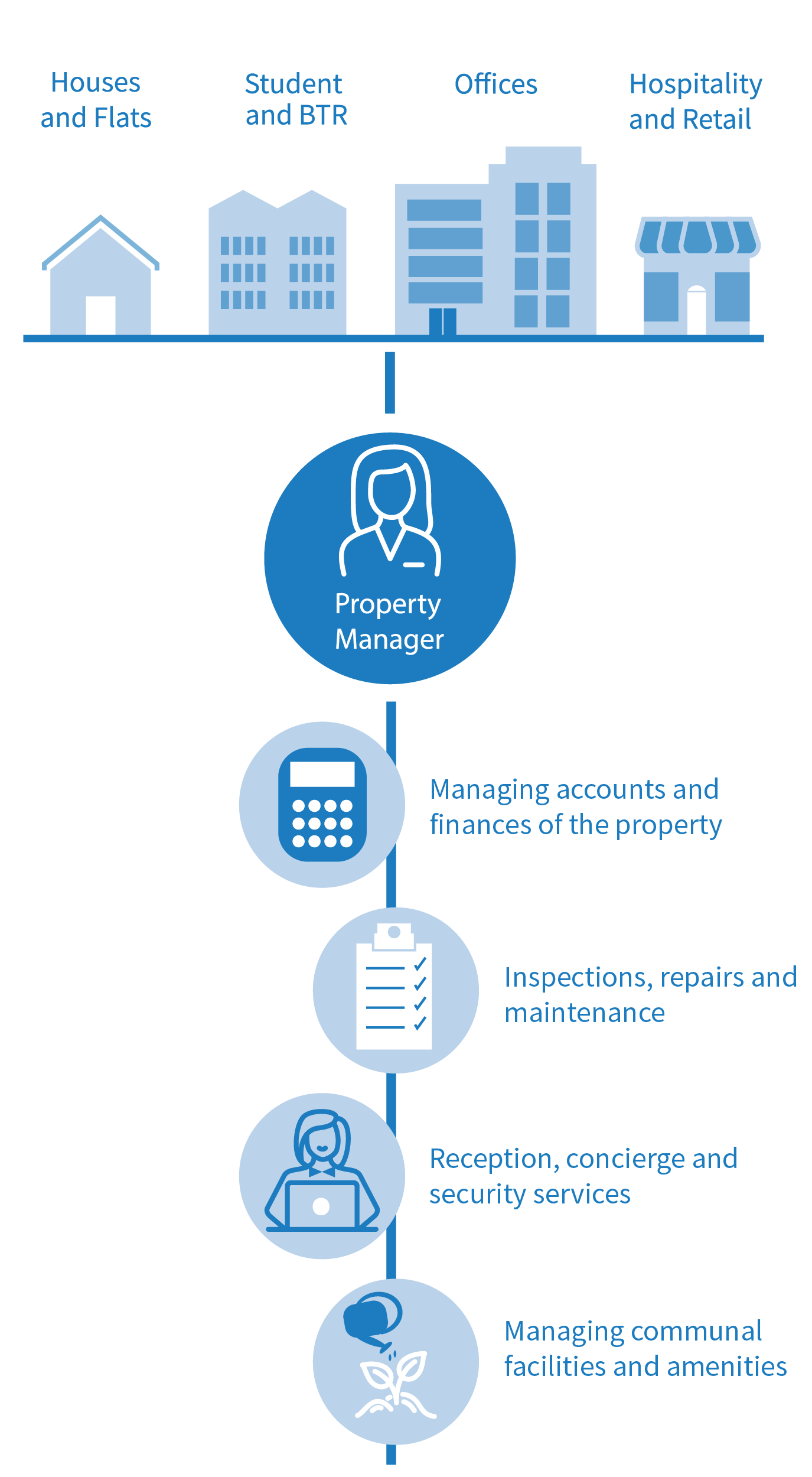What is property management?
Property management involves making sure that buildings are safe and well maintained. As a liaison between the property owner and the occupier of the property, a property manager ensures that both parties are satisfied with the property and its daily operations and that obligations under lease contracts are fulfilled.
Who are property managers?
Property managers operate across all types of UK property – from residential property such as the private rented sector (PRS) and student accommodation, to commercial properties such as offices, shopping centres and high street shops. They also operate across the public, private and social sectors.
Typically, they work for or on behalf of property owners, though many occupier businesses with large property portfolios (such as retailers or hospitality businesses) will often have in-house property expertise. They may be employed directly by a property-owning business, but it is more common for them to work for a specialist property management service provider, which range from small agencies serving a specific town or city to large multinational organisations.
What does property management involve in practice?
Property management services vary depending on the scale and type of property, but may typically include the following:
- Managing the accounts and finances of a property including deposit, rent and service charge collection;
- Providing reception/concierge services, including security, guest entry and receipt of post and other deliveries;
- Conducting regular property inspections to ensure compliance with health and safety regulations and actioning maintenance requests from occupiers;
- Operating, maintaining and cleaning communal facilities such as hallways, gardens, gyms, lounges, bike storage and parking; and
- Property management services sometimes extend to managing lease agreements, record keeping, advertising properties and screening tenants – however, in most cases this is the designated role of letting agents. At the point at which a property is let, the property manager then becomes the point of contact.
Why use a property manager?
Managing property, particularly large or multiple developments, requires time, resources and professionalism. Property managers are well versed in all aspects of property management, including health and safety, property law, accounting, customer service and communications. Property managers can also help maintain or increase the value of property through facilitating preventative maintenance and coordinating general upkeep.
In addition, property managers develop and deliver a number of additional service offerings that can save owners money and help them run properties more efficiently, including:
Smart buildings –using IoT (Internet of Things) technology to better manage aspects of a property, such as security, maintenance monitoring and controlling lighting and temperature. This enhanced monitoring can deliver substantial energy efficiency savings and highlight preventative maintenance that ends up saving money for both owners and occupiers.
Building data and insights – enhanced data and monitoring can also provide greater insight into property operations, which can be used to compare different buildings and inform owners’ decisions to invest in cost-effective upgrades and future investment into other properties.

